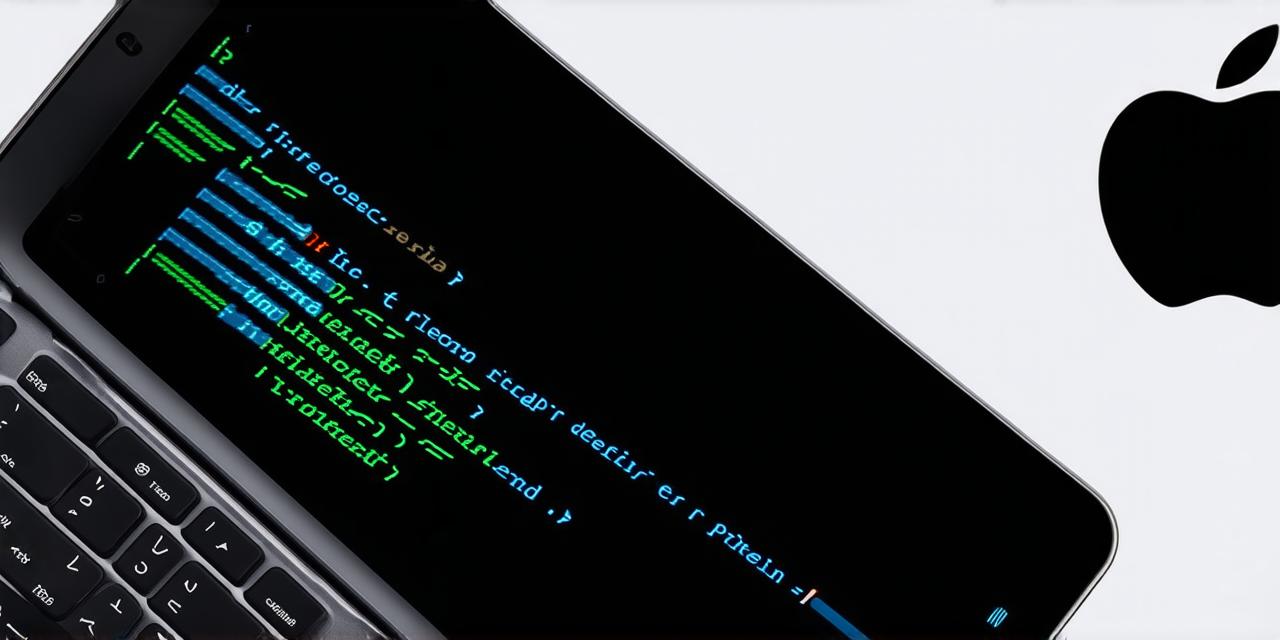iOS app development is a complex process that requires developers to have a good understanding of various programming languages and tools. However, choosing the right programming language for your project can be a daunting task for many developers. In this article, we will explore some of the most popular programming languages used in iOS app development and help you make an informed decision based on your project requirements.
Swift vs Objective-C: A Battle for the Future of iOS App Development
One of the most popular debates among iOS developers is whether to use Swift or Objective-C. While both programming languages have their own unique features and advantages, the choice ultimately depends on the project’s requirements.
Swift: The Modern Programming Language for iOS App Development
Swift’s main features include:
- Optionals: A safer way of handling null values in your code.
- Closures: A powerful feature that allows you to pass functions as arguments or return them from functions.
- Protocols: A way of defining interfaces for other classes to implement, making it easier to write reusable and maintainable code.
- Playgrounds: An interactive development environment that allows you to test your code in real-time without having to run the app on a device or simulator.
In addition to these features, Swift also offers improved performance compared to Objective-C, making it an ideal choice for developers who want to create apps that are both fast and efficient. Moreover, Swift has been gaining popularity among open-source communities and is now supported by various libraries and frameworks, making it easier for developers to find resources and support.
However, there are some downsides to using Swift. Firstly, Swift is a relatively new language, which means that there is limited documentation and fewer experienced developers compared to Objective-C. Secondly, the learning curve of Swift can be steep for developers who are new to programming or have experience with other languages.
Objective-C: The Old Guard of iOS App Development
Objective-C is an older programming language that was introduced by Apple in 1987 and has been used for iOS app development since the beginning. Objective-C is based on the C programming language and is known for its efficiency, flexibility, and stability.
Objective-C’s main features include:
- Message passing: A way of sending messages between objects to perform specific actions.
- Classes and methods: A way of organizing code into reusable and maintainable classes and methods.
- Automatic memory management: A feature that automatically frees up memory when objects are no longer in use, reducing the risk of memory leaks and crashes.
- Cocoa frameworks: A set of pre-built libraries and tools that make it easier for developers to create complex user interfaces and handle various tasks such as networking, data storage, and graphics rendering.

Objective-C is still widely used by many iOS developers, especially those who are more comfortable with older languages or who have a lot of experience with C programming. However, Objective-C can be slower and less efficient compared to Swift, making it less suitable for apps that require high performance.
Conclusion: Choosing the Right Programming Language for Your iOS App Development Project
In conclusion, choosing the right programming language for your iOS app development project is a crucial decision that requires careful consideration of various factors such as performance, flexibility, stability, and developer experience. While Swift offers improved performance, modern features, and a growing community of developers, Objective-C remains the old guard of iOS app development, providing efficient and flexible coding options for developers who prefer older languages or have more experience with C programming.
FAQs:
1. What is the difference between Swift and Objective-C?
Swift and Objective-C are two different programming languages used for iOS app development. Swift is designed to be modern, fast, and efficient and was introduced by Apple in 2014 to replace Objective-C as the primary language for iOS app development. On the other hand, Objective-C is an older language that has been used for iOS app development since the beginning and is based on the C programming language.
2. Which programming language is better for iOS app development?
The choice of programming language depends on the project requirements, personal preferences, and developer experience. While Swift offers improved performance, modern features, and a growing community of developers, Objective-C remains the old guard of iOS app development and provides efficient and flexible coding options for developers who prefer older languages or have more experience with C programming.
3. Can I use Swift to develop apps using older tools and frameworks?
Swift is designed to work with older tools and frameworks, making it possible to use it for developing apps that require compatibility with older versions of iOS or other platforms. However, Swift’s modern features may not be compatible with some older libraries and tools, which can make development more challenging.
4. How do I learn Swift if I am new to programming?
There are many resources available online for learning Swift, including tutorials, documentation, and community forums. Additionally, Apple offers free online courses on Swift through its developer portal, making it easier for beginners to get started with the language.
